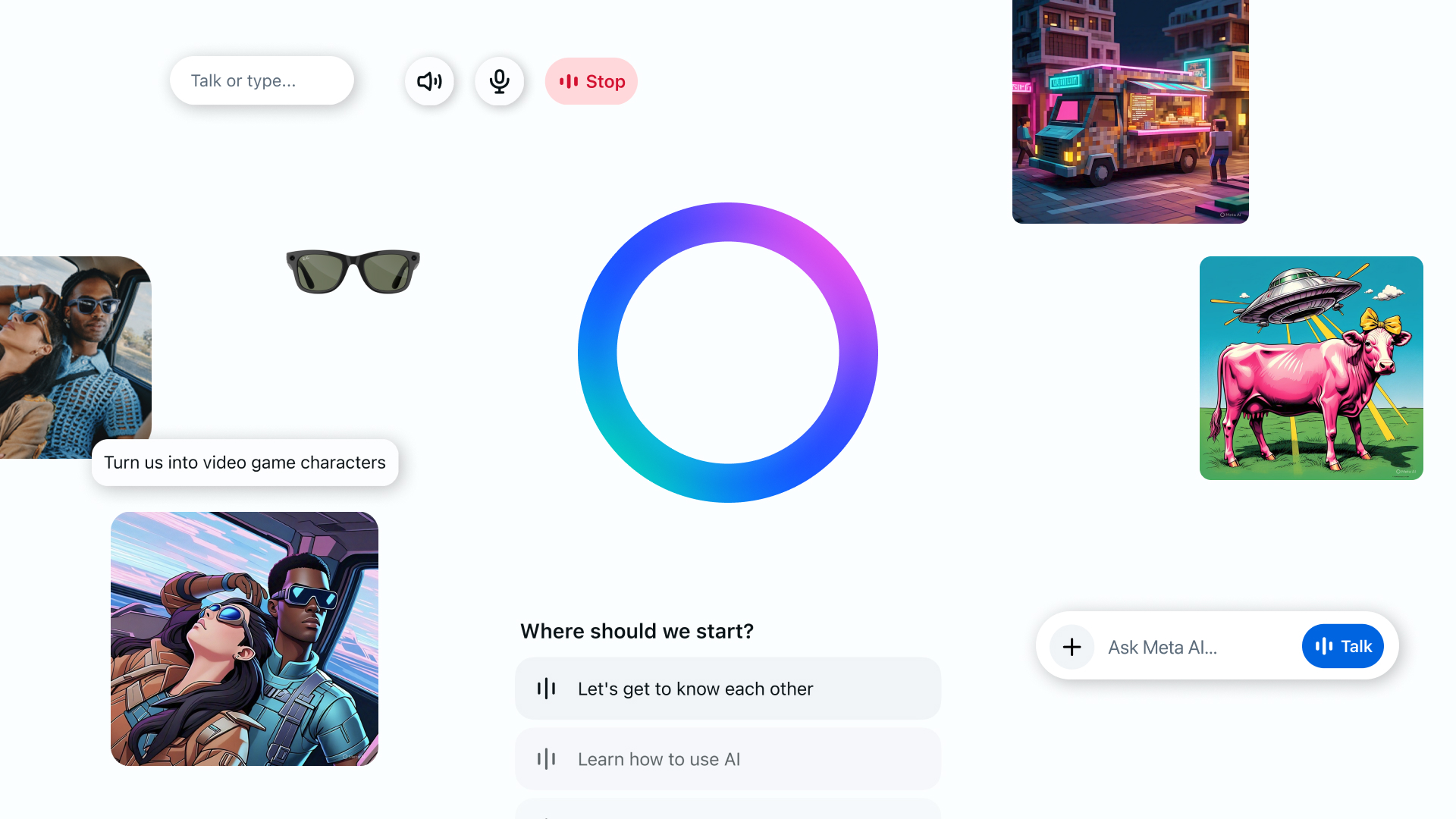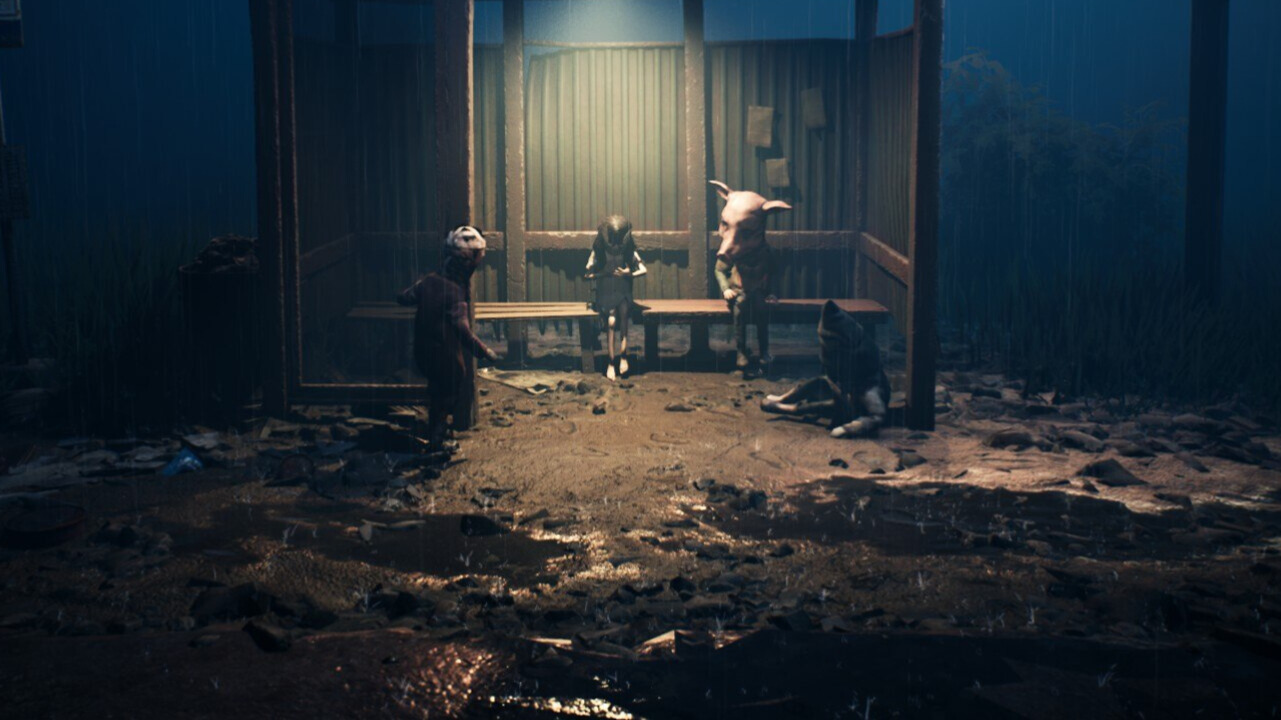Meta wins AI copyright suit before it could go to a jury as the 'plaintiffs made the wrong arguments'
A landmark case on use of copyright materials by AI could be on the horizon, but the arguments weren't strong enough here.

Keep up to date with the most important stories and the best deals, as picked by the PC Gamer team.
You are now subscribed
Your newsletter sign-up was successful
Want to add more newsletters?

Every Friday
GamesRadar+
Your weekly update on everything you could ever want to know about the games you already love, games we know you're going to love in the near future, and tales from the communities that surround them.

Every Thursday
GTA 6 O'clock
Our special GTA 6 newsletter, with breaking news, insider info, and rumor analysis from the award-winning GTA 6 O'clock experts.

Every Friday
Knowledge
From the creators of Edge: A weekly videogame industry newsletter with analysis from expert writers, guidance from professionals, and insight into what's on the horizon.

Every Thursday
The Setup
Hardware nerds unite, sign up to our free tech newsletter for a weekly digest of the hottest new tech, the latest gadgets on the test bench, and much more.

Every Wednesday
Switch 2 Spotlight
Sign up to our new Switch 2 newsletter, where we bring you the latest talking points on Nintendo's new console each week, bring you up to date on the news, and recommend what games to play.

Every Saturday
The Watchlist
Subscribe for a weekly digest of the movie and TV news that matters, direct to your inbox. From first-look trailers, interviews, reviews and explainers, we've got you covered.

Once a month
SFX
Get sneak previews, exclusive competitions and details of special events each month!
This week has been a weird one for AI copyright lawsuits. Antrophic just won a suit to use copyrighted content, but pirating that content first is indeed illegal. Meta, similarly, won a case for its use of copyrighted content, but once again, there's a big asterisk.
As reported by TechCrunch, Meta won its case against 13 book authors whose work was scraped by its AI in a summary judgment. Effectively, this means the case was decided before going to a jury.
It's not so much that Meta won, so much as the plaintiffs lost, as specified by US federal judge Vince Chhabria:
"This ruling does not stand for the proposition that Meta’s use of copyrighted materials to train its language models is lawful. It stands only for the proposition that these plaintiffs made the wrong arguments and failed to develop a record in support of the right one."
The central arguments made, according to Chhabria, are that "Llama is capable of reproducing small snippets of text from their books" and that Llama using the authors' work "has diminished the authors’ ability to license their works for the purpose of training large language models".
Chhabria calls both of these arguments "clear losers" as Llama doesn't generate "enough text from the plaintiffs’ books to matter, and the plaintiffs are not entitled to the market for licensing their works as AI training data". The one argument made by the plaintiffs that Chhabria does give credence to is that scraping their work could pump the market with similar derivative work.

Despite suggesting this argument could have merit, the summary says the plaintiffs "barely give this issue lip service, and they present no evidence about how the current or expected outputs from Meta’s models would dilute the market for their own works."
Keep up to date with the most important stories and the best deals, as picked by the PC Gamer team.
Given that part of the plaintiff's argument is about them not being able to sell their books to LLM owners, I also don't buy it, as derivative work could still come from content willingly given to these tools.
There are four factors in determining fair use that judges consider. They are:
- The purpose and character of the use
- The nature of the copyrighted work
- The amount and substantiality of the portion used in relation to the copyright work as a whole
- The effect of the use upon the potential market for or value of the copyrighted work
Whilst clarifying that fair use is rather flexible and malleable to change, Chhabria focused on the fourth factor as the one that potential plaintiffs should attempt to win on.
"Because the issue of market dilution is so important in this context, had the plaintiffs presented any evidence that a jury could use to find in their favor on the issue, factor four would have needed to go to a jury."
Effectively, the claim made is that the plaintiffs not only misunderstood where they could win but also focused on arguments that weren't persuasive for the current application of copyright law.
"In cases involving uses like Meta’s, it seems like the plaintiffs will often win". Chhabria continues, "It’s hard to imagine that it can be fair use to use copyrighted books to develop a tool to make billions or trillions of dollars while enabling the creation of a potentially endless stream of competing works that could significantly harm the market for those books."
Anthropic's recent case rules that it didn't break the law when using copyrighted material for its LLM Claude, but that using pirated material is still illegal. The judge in this case, Judge Alsup, argued Claude's use of that material is “quintessentially transformative."
Chhabria is critical of the notion that Judge Alsup focuses on the transformative nature of generative AI without acknowledging "the harm it can inflict on the market for the works it gets trained on".
In a similar vein, Getty has recently dropped a claim against Stability AI for its use of Getty's copyrighted material. Multiple cases are being settled each week around AI's use of copyrighted material, yet there appears to be room for a landmark case, according to Chhabria. In this specific case, though, "the plaintiffs presented no meaningful evidence on market dilution at all".

1. Best overall:
HP Omen 35L
2. Best budget:
Lenovo Legion Tower 5i
3. Best compact:
Velocity Micro Raptor ES40
4. Alienware:
Alienware Aurora
5. Best mini PC:
Minisforum AtomMan G7 PT

James is a more recent PC gaming convert, often admiring graphics cards, cases, and motherboards from afar. It was not until 2019, after just finishing a degree in law and media, that they decided to throw out the last few years of education, build their PC, and start writing about gaming instead. In that time, he has covered the latest doodads, contraptions, and gismos, and loved every second of it. Hey, it’s better than writing case briefs.
You must confirm your public display name before commenting
Please logout and then login again, you will then be prompted to enter your display name.

